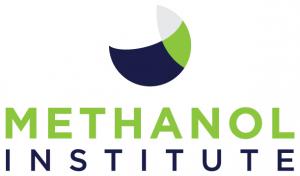BEIJING, CHINA, May 10, 2021 /EINPresswire.com/ — The Methanol Institute (MI) will be organizing a webinar to launch a new report titled Methanol Fuel in China on May 17, 2021, 9.00 a.m. (ET). The report provides a first-of-its-kind look at China’s use of methanol as a fuel for cars, trucks, industrial boilers, cook stoves, kilns, and residential heating. The Methanol Fuel in China report was the outcome of a collaborative effort between MI, Methanex, and China Association of Alcohol and Ether Fuels and Automobiles (CAAEFA) to shed light on the intricacies of the methanol fuel market in China which has to date remained largely opaque to observers.
The report’s authors gathered data through a survey of more than four hundred Chinese companies that were either manufacturers or users of methanol applications in China. The sampling pool for the survey was representative of the whole supply chain from production to consumption of methanol, to include the technologies that enabled its consumption as a fuel. This allowed the authors to get a holistic insight into the entire value chain of different methanol applications. In 2019, total consumption of methanol fuel in China reached nearly 6 million metric tons (2 billion gallons or 7.5 billion liters) accounting for 7% of total methanol consumption in China, the world’s largest methanol market.
As a clean-burning fuel that is versatile in its production feedstock, methanol has risen to prominence as a widely accessible and affordable energy product in China. As a liquid at ambient temperature and pressure, methanol is a drop-in fuel to replace gasoline or diesel (e.g., internal combustion engines, industrial boilers, cook stoves, and kilns) without major modifications. Methanol’s ability to offer the Chinese market an alternative energy product that bolsters energy security while improving air quality through lower emissions, has led to its meteoric adoption in tandem with the needs of the country’s growing economy.
Generally, methanol is used in China as a fuel for mobility and heat generation (thermal energy). In both categories, it was observed that these are maturing markets with companies at varying stages of rapid commercial development.
In mobility the acceptance and approval of M100 vehicles operating on neat methanol is growing due to various provincial and municipal methanol fuel vehicles pilots. As a result, there was a significant growth of M100 vehicles on Chinese roads in provinces like Guizhou, Shanxi, Shaanxi, and Gansu. Today, there are more than 25,000 M100 vehicles on the road in China, mostly taxies operating 24/7, and served by a network of nearly 100 methanol fueling stations.
The thermal market also saw similar growth off the back of the Chinese central government’s implementation of its “Three-Year Plan on Defending the Blue Sky”, where clean fuels were favored to safeguard air quality and lower emissions. As a clean-burning fuel compliant with emission regulations, more than 6 billion liters of methanol was consumed by thermal applications such as industrial boilers, kilns, and cook stoves in 2019. The rapid growth of methanol fuels in the thermal market is notably supported by methanol’s affordability and wide availability in China, offering end users with a compliant fuel that is secure and economical in its supply.
For more information and insights about China’s methanol fuel market, register for the webinar launch of the Methanol Fuel in China report HERE.
###
About MI
The Methanol Institute (MI) serves as the global trade association for the methanol industry, representing the world’s leading producers, distributors, and technology companies. Founded in 1989 in Washington DC, MI now represents its members from five offices around world in Washington DC, Beijing, Brussels, Delhi, and Singapore.
Mr. Kai Zhao
Methanol Institute
kzhao@methanol.org
![]()

























